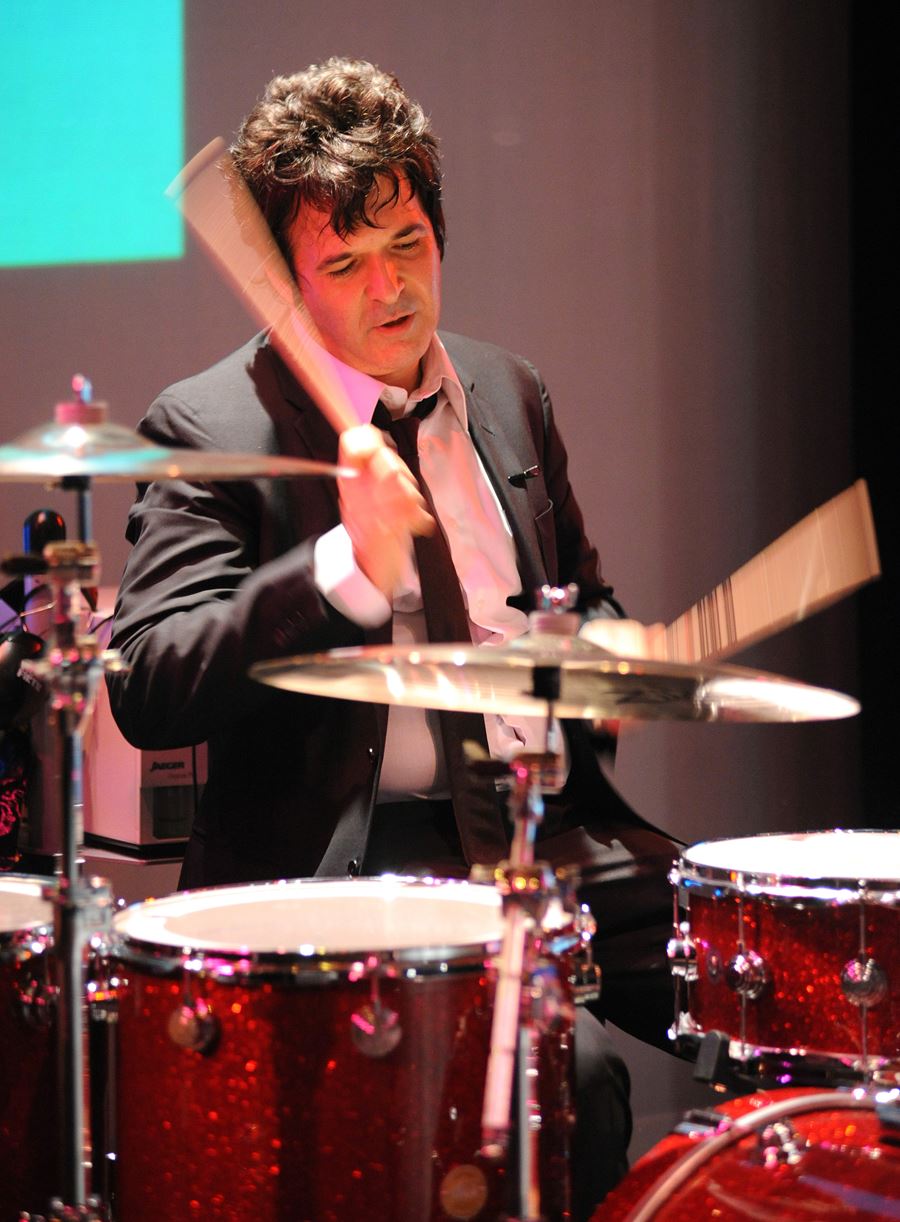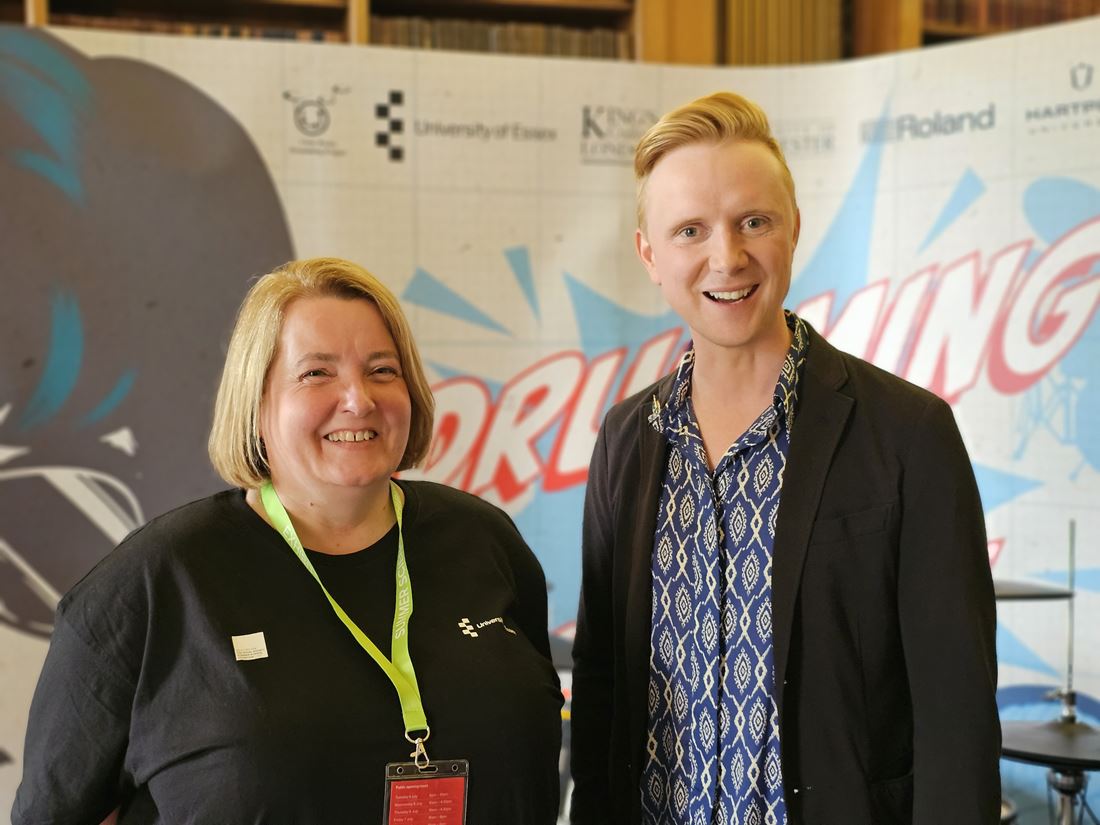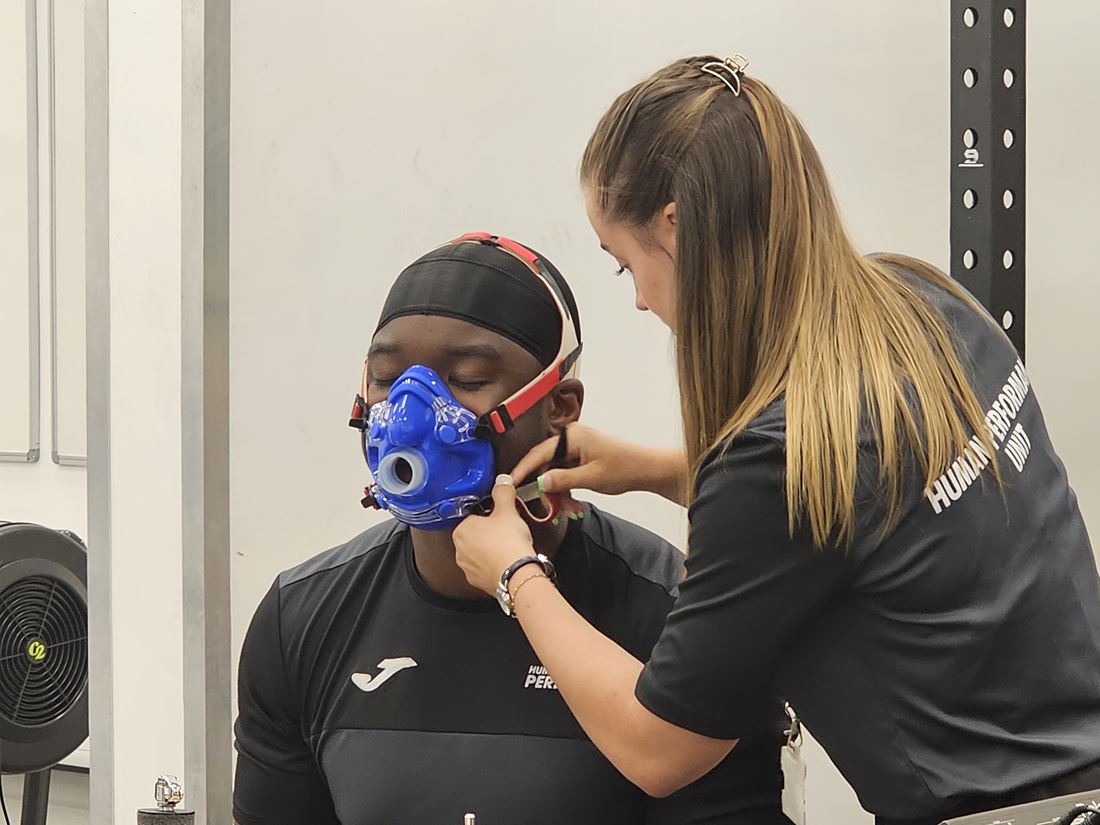Science behind the sticks
Drumming for health and wellbeing
Drumming is a complex activity that involves the co-ordination of multiple limbs to create rhythmic sound. By learning to play the drums, people can improve their ability to concentrate on tasks, resist impulses to act immediately and reduce restlessness. This can be particularly beneficial for people who are neurodiverse.
We can even see this impact in brain scans, which clearly show that after learning to play the drums, there was positive changes in brain regions associated with motor coordination, inhibitory behaviour and the parts of the brain that mirror what someone else is doing.
Join us at the Royal Society Summer Science exhibition on 4th to the 9th of July 2023, where you will be able to learn more about the impact of drumming on our physical and mental health and wellbeing.

Physical Health
Rock Drumming is physically demanding. Playing the drums involves the co-ordination of four limbs (arms and legs) to create the beat of songs, with typical concerts or gigs lasting 90 minutes or more. Drummers also perform under stage lighting in crowded venues which can create a hot and humid environment. This combination of physical and environmental demands mean that the drummer can use similar amounts of energy to professional athletes during competitive competition.
Physical Activity is more than Sport - watch the drummer of your favourite band during a performance. Look closely at their breathing, movement and sweating, these are all signs that their body is working hard.
Related papers
- De La Rue, S. E., Draper, S. B., Potter, C. R., & Smith, M. S. (2013). Energy expenditure in rock/pop drumming. International journal of sports medicine, 34(10), 868-872.



Cognitive Health
When learning a new skill or when doing two things at the same time, your brain works harder. The brain creates or strengthens the pathways between neurons (little grey cells) known as neuroplasticity. Drumming is a great example of an activity that exercises the brain through the physical demands of playing, the creative demands of music making and the emotional response to music listening and performing. By using brain scans (fMRI), we were able to observe changes to the brain structure and functions of our participants who had drumming instruction, compared to those who did not. The scans showed changes to the areas of the brain that help people mirror or copy another person’s actions. We also saw changes to the brain’s ability to control impulses.
Exercising your brain – try learning a new skill, a new dance, sport skill, words in another language or writing with your other hand. First, this will be hard, it will take time, you will make mistake, it won’t be the same as the expert, but with practice, it will get easier, you will make less mistakes, you will be quicker and your action will be closer to the expert. Your brain is making new connections and then strengthening these pathways with each repetition.
Related papers
- Amad, A., Seidman, J., Draper, S. B., Bruchhage, M. M., Lowry, R. G., Wheeler, J., ... & Smith, M. S. (2017). Motor learning induces plasticity in the resting brain—drumming up a connection. Cerebral Cortex, 27(3), 2010-2021.
- Bruchhage, M. M., Amad, A., Draper, S. B., Seidman, J., Lacerda, L., Laguna, P. L., ... & Williams, S. C. (2020). Drum training induces long-term plasticity in the cerebellum and connected cortical thickness. Scientific reports, 10(1), 10116.
- Cahart, M. S., Amad, A., Draper, S. B., Lowry, R. G., Marino, L., Carey, C., ... & Williams, S. C. (2022). The effect of learning to drum on behavior and brain function in autistic adolescents. Proceedings of the National Academy of Sciences, 119(23), e2106244119.
Social and Emotional Wellbeing
Your choice of music is often personally meaningful and therefore varies from person to person. Listening to or making music is pleasurable, it will help people to reduce stress and anxiety, manage their emotions and create social connections with others. Music is used in many aspects of life, such as aiding relaxation, sleep, concentration and even facilitating exercise routines. In our research with schools, we have been teaching pupils with emotional and behavioural difficulties how to play the electronic drum kit. By teaching children and adolescents to play the drums we have been able to observe positive changes in social wellbeing such as better social communication and interaction with peers, parents and teachers. We also saw better emotional control, self-expression and attentional focus.
Music and Mood – think about the type of music that you like to listen to, how does this change when you are doing different activities or in different moods? People can change their choice of music to match their mood, or sometimes music choice can change a person’s mood.
Related papers
- Lowry, R. G., Hale, B. J., Draper, S. B., & Smith, M. S. (2019). Rock drumming enhances motor and psychosocial skills of children with emotional and behavioral difficulties. International Journal of Developmental Disabilities, 65(3), 152-161.
Featured on
Contributors
The Clem Burke Drumming Project

Professor
Sport & Exercise Science, University of ChichesterI collected the first physiological data on Blondie drummer Clem Burke during the bands 1998-99 'No Exit' world tour. Co-founder of the Clem Burke Drumming Project in 2008.

Dean
Research and Knowledge Exchange, Hartpury UniversitySteve is an expert in the assessment of endurance exercise and developed the methods to assess oxygen uptake and energy cost in drumming. He was a co-founder of the Clem Burke Drumming Project.
Head of Department
Neuroimaging, King's College LondonSteve is a world leading neuroscientist who has become increasingly interested in using drumming as an intervention in brain disorder research.

Drummer
Band, Skunk AnansieSkunk Anansie drummer since 1994, CBDP contributor since 2011, founder of Music Support in 2016.
Global Strategic Product Marketing Manager
Drums, Roland Corporation





